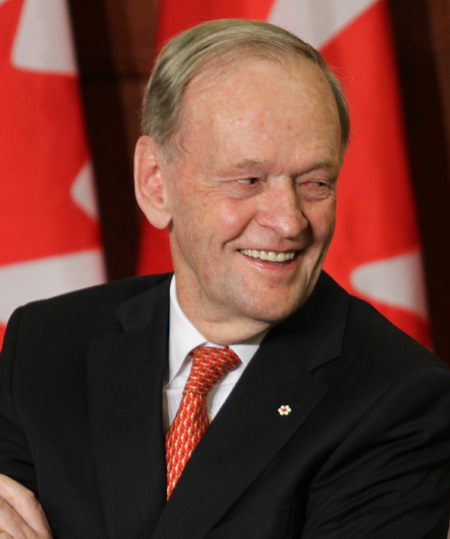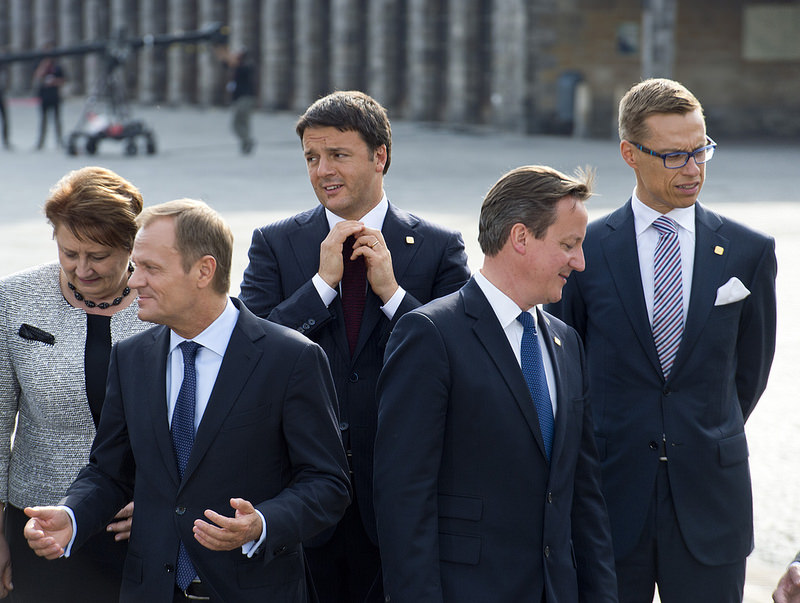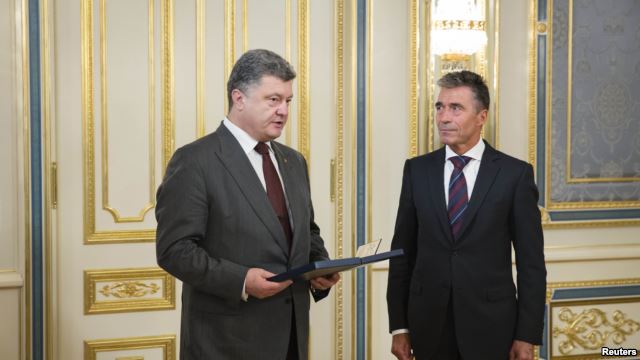On March 16, 2003, American President George W. Bush gave the UN Security Council a 24- hour ultimatum to approve the resolution tabled by the US, UK and Spain, authorizing the invasion of Iraq. Canadian Prime Minister Chrétien understood that the time for diplomacy had passed, but, after consulting with his advisors and key cabinet ministers, he stated that Canada would not join a US-led war. The next day, when it became clear the resolution would not pass, Bush’s press secretary declared that the resolution had been withdrawn. Shortly after 2pm on March 17, Chrétien stated in parliament: “If military action proceeds without a new resolution in the Security Council, Canada will not participate.” Two days later the war in Iraq began. This decision raised numerous concerns in Canada. Some feared that the decision not to join the invasion would marginalize Canada’s role in foreign affairs even further than it already was. Others believed that the decision would have economic ramifications, by irritating Canada’s largest trading partner.
 Some scholars have argued that Canada’s refusal to participate in the Iraq invasion of 2003 was based on the absence of UN Security Council approval. If this were true, it would imply that all foreign policy decisions by the Chrétien government had to be sanctioned by multilateral institutions. This is not the case. In fact, in 1998, when Iraq failed to comply with a series of post-gulf war UN resolutions, Chrétien supported a US-UK bombing campaign in Iraq, which was not sanctioned by the UN Security Council. As Chrétien stated on February 9, 1998, “Saddam’s determination to develop and use weapons of mass destruction, chemical warfare in particular, is well documented” and “that is why, if it comes to that, we believe a military strike against Iraq would be justified….” In 1999, Prime Minister Chrétien supported and participated in the NATO bombing campaign in Kosovo and Bosnia, in the absence of UN approval.
Some scholars have argued that Canada’s refusal to participate in the Iraq invasion of 2003 was based on the absence of UN Security Council approval. If this were true, it would imply that all foreign policy decisions by the Chrétien government had to be sanctioned by multilateral institutions. This is not the case. In fact, in 1998, when Iraq failed to comply with a series of post-gulf war UN resolutions, Chrétien supported a US-UK bombing campaign in Iraq, which was not sanctioned by the UN Security Council. As Chrétien stated on February 9, 1998, “Saddam’s determination to develop and use weapons of mass destruction, chemical warfare in particular, is well documented” and “that is why, if it comes to that, we believe a military strike against Iraq would be justified….” In 1999, Prime Minister Chrétien supported and participated in the NATO bombing campaign in Kosovo and Bosnia, in the absence of UN approval.
Prior to the invasion of Iraq, Canada deployed its military personnel to Afghanistan to support the invasion in 2001. In February 2003, one month prior to the US invasion of Iraq, Chrétien agreed to send an additional 1,700 Canadian ground troops to Kabul in Afghanistan, as part of NATO’s International Stabilization Assistance Force. The reason for this decision can be viewed from two different perspectives. First, Canada deployed more troops to Afghanistan in order to hamstring its ability to contribute personnel to any Iraqi war. Second, the deployment of more Canadian troops to Afghanistan allowed the US to divert more resources to Iraq. A better explanation for Canada’s non-participation, however, can be found in pressures it encountered at home, rather than international variables.
Canada did not join the US-led invasion of Iraq because the Canadian public (with the exception of Alberta) was strongly opposed to an intervention. This opposition was particularly strong in the province of Quebec where a provincial election was about to be held. According to polls, on November 24, 2002, only 24% of Canadians supported unilateral US action. In January 2003, support for war without UN approval had dropped to 10- 26%, with support in Quebec at 7%. A month later, in February 2003, 65-67% of Canadians were against an attack on Iraq without appropriate UN approval, and by April 2003, only 31% supported troop deployment to Iraq. Surveys on support for a US- led invasion of Iraq at provincial level, from February 2002 to March 2004, showed that on average, Albertans expressed the greatest support (52%), while Quebecers the lowest (25%) with BC in the middle (38%). These surveys demonstrate that there was very little support in Canada for a US- led invasion that lacked UN endorsement.
The most important consideration for Chrétien was the looming election in Quebec, scheduled for April 14 2003. This election was widely seen as a vote of confidence on Chrétien’s policies for the province, and this made the federal government extra cautious. In the early stage of Chrétien’s tenure as Prime Minister, he was confronted with a Quebec secession crisis. Historically, each time Ottawa decided to engage in a military intervention abroad, the question of national unity tended to become more salient. Therefore, given the very low support for the war in Quebec, Chrétien wanted to avoid at all cost a potential national unity crisis.
The threat of a crisis also explains why economic considerations (fears that the U.S. would retaliate economically if Canada did not participate) were not a major determining factor in Chrétien’s refusal to join the war. It was pressure at home, in particular, in Quebec that forced the Chrétien government to avoid the invasion of Iraq, on grounds that it was not endorsed by a UN resolution. Had the Canadian public supported the military intervention, Chrétien would likely have supported it as well, notwithstanding the lack of UN approval. This clearly demonstrates that public opinion at home can have a significant influence on states’ international foreign policy decisions.





